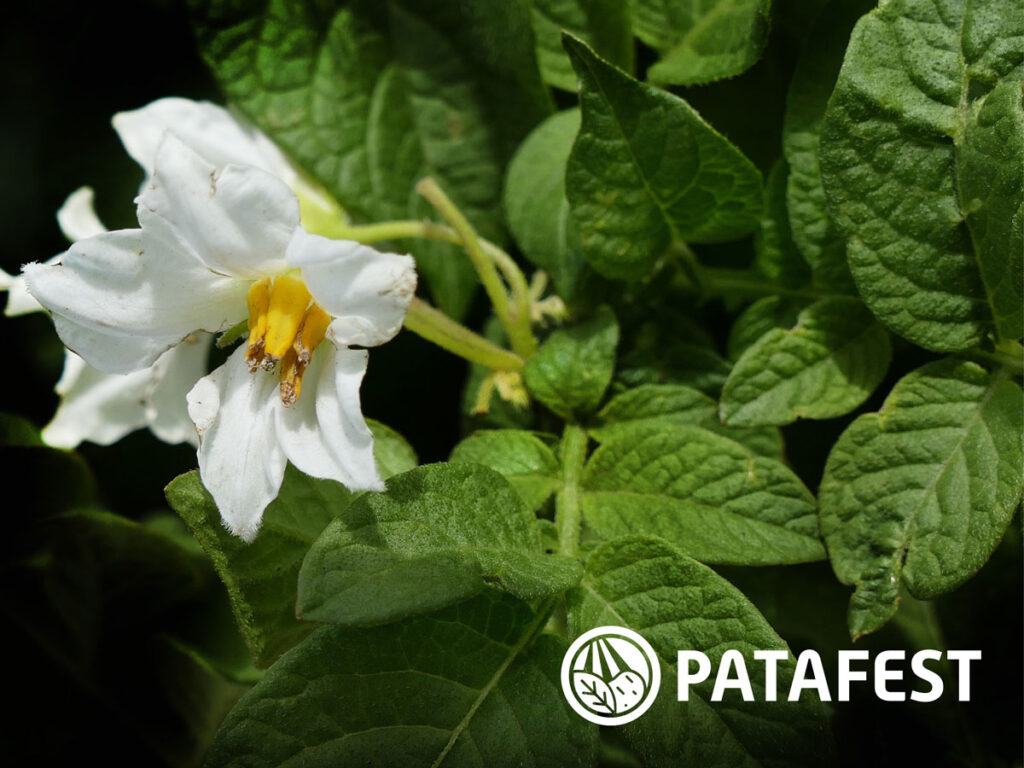Europe seeks protection from potato contagion. CATRIN scientists help with the solution
Protecting European potato production from certain diseases, in particular the insect-transferred disease “zebra chip”, which has already been devastating crops, especially in South America, is the main objective of the European project PATAFEST under the Horizon Europe RIA program. Since June this year, 18 partners from academia and commerce have been working together. The only domestic representative in the consortium is the Czech Advanced Technology and Research Institute – CATRIN of Palacký University Olomouc. The European Union will support the four-year research with roughly €10 million.
“The aim of the project is to prepare Europe for the possible emergence of a quarantine disease called ‘zebra chip’, which, particularly in the Americas, significantly reduces potato production, negatively affects the visual quality of the tubers and prevents their sale. Our joint task is to develop a strategy to monitor the occurrence and symptoms of this disease, as well as of known post-harvest diseases in Europe, and to develop technologies that can protect potatoes from these,” said Nuria De Diego, head of the Olomouc research team.
The consortium has set several tasks, she said. Among the main ones are describing the pathway of pest spread at molecular level and to identify potato varieties resistant to selected pathogens, to ensure effective pre-harvest treatment of plants and soil against insect vectors and soil pathogens, and to develop post-harvest technologies to control soil pathogens and maintain the quality of stored potato tubers.
In potatoes affected by zebra chip, dark, unattractive stripes appear inside the tubers. This visual defect makes the crop unmarketable. However, the disease also affects the plants themselves and their development, significantly reducing their production. The disease is caused by a pathogen transmitted by a small insect of the mera family. However, the project will also focus on other selected pathogens and will use aphids as model insects. Therefore, the CATRIN project involves not only experts in plant phenotyping, i.e. monitoring plant characteristics in relation to environmental changes using automated non-invasive methods, but also experts in insect research.
“In the area of zebra chip monitoring, we will focus on a molecular biological approach in Olomouc, using molecular markers to monitor the presence of the disease agent in insect vectors and plants from Ecuador. We will also be involved in the development of technologies for monitoring the postharvest quality of tubers,” explained Lukáš Spíchal, head of the Phenotyping research group at CATRIN. He and his team will also be testing compounds creating a mechanical barrier on the leaves that insects cannot overcome, which are being developed by colleagues in Israel, for example. The task will be to verify both their effectiveness on insects and their safety for the crop itself.

One of the outputs of the project is to be a smartphone app that will allow the symptoms of the zebra chip to be detected on plants under field conditions, as well as other diseases on tubers stored after harvest. “Using non-invasive phenotyping, we will obtain large datasets – photographs of disease progression under different conditions that may occur in storage, which our partners will use to train neural networks. We will track what symptoms appear on tubers and what dynamics they have under different conditions, whether it is temperature or humidity, to name a few. This can help to predict the occurrence of diseases under given conditions and to find optimal storage conditions that will significantly slow down disease development,” explained De Diego.
The PATAFEST (Potato crop effective management strategies to tackle future pest threats) project involves partners from Spain, Italy, Israel, Belgium, Germany, France, the UK and Ecuador, with the Spanish research company FUNDITEC as the main coordinator. In addition to universities and research institutions, private companies including potato growers and commercial companies are also involved.
“This is the first experience of its kind and a huge learning opportunity for us. Not only will we deepen our cooperation within the CATRIN groups, but we will gain experience in communicating with other foreign partners. We believe that we will be able to use this knowledge in other European projects, perhaps as coordinators,” concluded Spíchal.

Funded by the European Union. Views and opinions expressed are however those of the author(s) only and do not necessarily reflect those of the European Union or the European Research Executive Agency (REA). Neither the European Union nor the granting authority can be held responsible for them.

